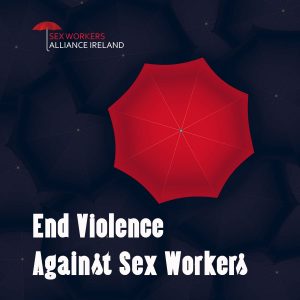Today is World Day against Trafficking in Persons and we call on the government and the Gardaí to stop conflating consensual sex work and trafficking so that resources could be used where they are needed most: prevention of trafficking.
Kate Mc Grew, director of the Sex Workers Alliance Ireland (SWAI) and current sex worker said “Client criminalisation, also known as the Nordic Model, was introduced in Ireland in 2017 to protect vulnerable people in sex work, but instead, the most vulnerable sex workers are more at risk of violence and exploitation. Criminalisation of any aspect of sex work drives sex work underground which means more difficulty finding those vulnerable to exploitation, including trafficking victims.”
She continued “The Nordic Model has been in effect in Northern Ireland since 2015 and it has not reduced the amount of trafficking in Northern Ireland. In fact, trafficked victims are prosecuted there.
Migrants are overwhelmingly the targets of brothel raids. Anti-trafficking laws are often used as a tool of immigration instead of care and refuge. The reality is that in Ireland many more sex workers have been arrested than clients. Workers are often asked to leave the country or face prosecution. This flies in the face of the care and the rights-based approach that the state is supposed to show.
The state’s anti-trafficking endeavours focus overwhelmingly on criminalisation and “awareness-raising” of sex trafficking. Very little attention is paid to the larger problem of labour trafficking in Ireland. This is not to minimise the very serious crime of sex trafficking. Decriminalisation of sex work would not mean that sex trafficking would become legal.
Prevention of trafficking is better than criminalisation. If we want to help the most vulnerable in sex work leave, we need to have safety nets in place, such as access to housing, childcare, healthcare or anything that alleviates why the person entered sex work in the first place.
Sex workers are the best people placed to aid in the fight against sex trafficking. Sex workers want to be allies, and we are best placed to do so. But the law does not respond to the circumstances of deep poverty, domestic violence, homelessness, and drug mis-use that lead some to becoming susceptible to trafficking.”
Decrim for Safety


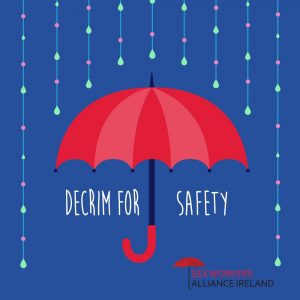
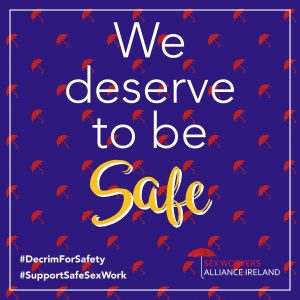
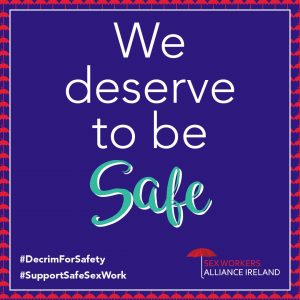
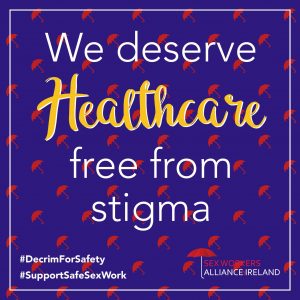
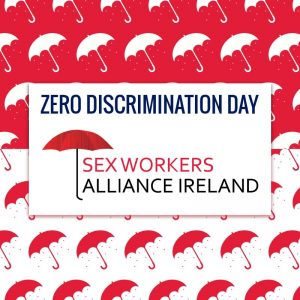

 ess releasem
ess releasem